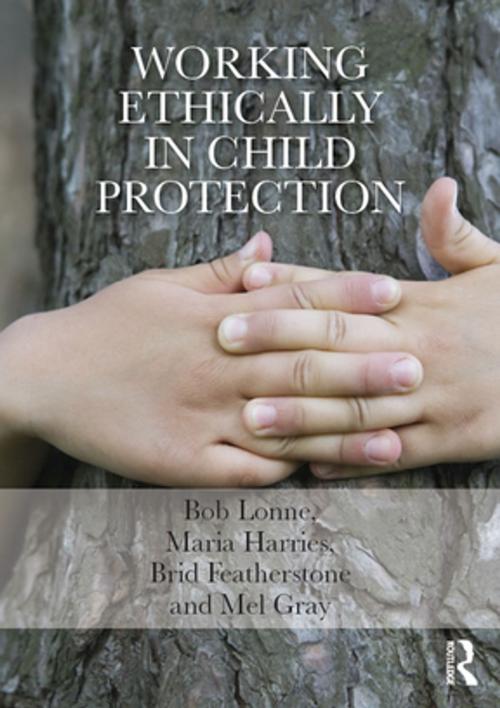Working Ethically in Child Protection
Nonfiction, Social & Cultural Studies, Social Science, Social Work| Author: | Bob Lonne, Maria Harries, Mel Gray, Brid Featherstone | ISBN: | 9781317914440 |
| Publisher: | Taylor and Francis | Publication: | August 20, 2015 |
| Imprint: | Routledge | Language: | English |
| Author: | Bob Lonne, Maria Harries, Mel Gray, Brid Featherstone |
| ISBN: | 9781317914440 |
| Publisher: | Taylor and Francis |
| Publication: | August 20, 2015 |
| Imprint: | Routledge |
| Language: | English |
In their day-to-day practice, social work and human services practitioners frequently find themselves in confusing ethical quandaries, trying to balance the numerous competing interests of protecting children from harm and promoting family and community capacity. This book explores the ethical issues surrounding child protection interventions and offers a process-oriented approach to ethical practice and decision making in child protection and family welfare practice. Its aim is to prepare students and early-career professionals for roles in the complex and challenging work of child protection and family support.
Beginning with a critical analysis and appreciation of the diverse organisational and cultural contexts of contemporary child protection and ethical decision-making frameworks, the authors outline a practical ‘real-world’ model for reshaping frontline ethical practice. Moving away from a focus on the child apart from the family, the authors recognise that child safeguarding affects the lives, not just of children, but also of parents, grandparents and communities. Working Ethically in Child Protection eschews dominant rational-technical models for relational ones that are value centred and focus on family well-being as a whole.
Rather than a single focus on assessing risk and diagnosing deficit, this book recognises that our child protection systems bear down disproportionately on those from disadvantaged and marginalised communities and argues that what is needed is real support and practical assistance for poor and vulnerable parents and children. It uses real-world case examples to illustrate the relevant ethical and practice principles, and ways in which students and practitioners can practise ethically when dealing with complex, multi-faceted issues.
In their day-to-day practice, social work and human services practitioners frequently find themselves in confusing ethical quandaries, trying to balance the numerous competing interests of protecting children from harm and promoting family and community capacity. This book explores the ethical issues surrounding child protection interventions and offers a process-oriented approach to ethical practice and decision making in child protection and family welfare practice. Its aim is to prepare students and early-career professionals for roles in the complex and challenging work of child protection and family support.
Beginning with a critical analysis and appreciation of the diverse organisational and cultural contexts of contemporary child protection and ethical decision-making frameworks, the authors outline a practical ‘real-world’ model for reshaping frontline ethical practice. Moving away from a focus on the child apart from the family, the authors recognise that child safeguarding affects the lives, not just of children, but also of parents, grandparents and communities. Working Ethically in Child Protection eschews dominant rational-technical models for relational ones that are value centred and focus on family well-being as a whole.
Rather than a single focus on assessing risk and diagnosing deficit, this book recognises that our child protection systems bear down disproportionately on those from disadvantaged and marginalised communities and argues that what is needed is real support and practical assistance for poor and vulnerable parents and children. It uses real-world case examples to illustrate the relevant ethical and practice principles, and ways in which students and practitioners can practise ethically when dealing with complex, multi-faceted issues.















